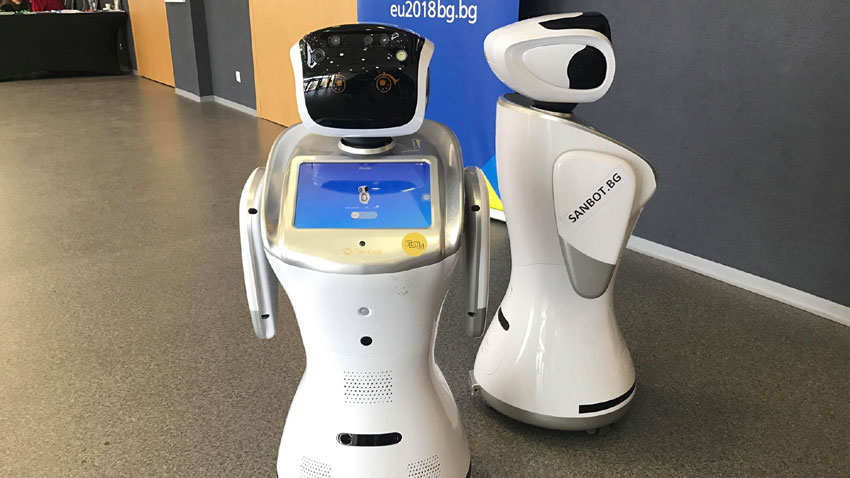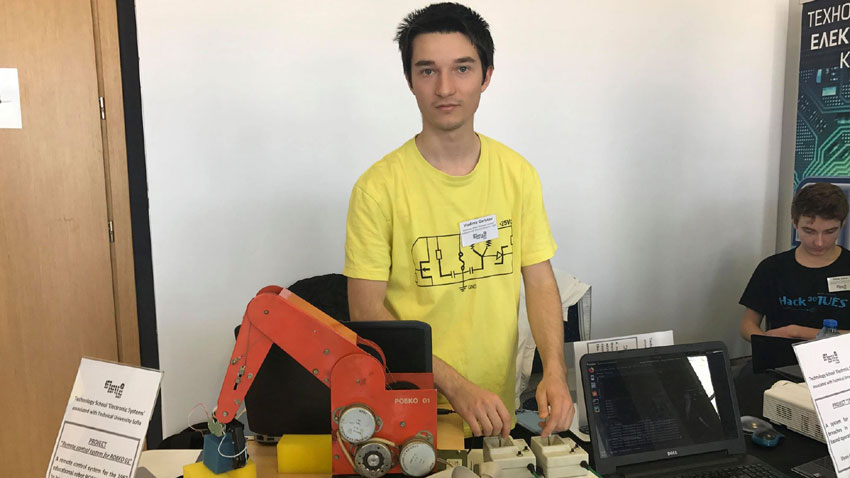"Education and development of digital technologies are among the main focuses of the Bulgarian Presidency," said Yassen Gyurov, Chair of the Education Committee under the Bulgarian Presidency of the Council of the EU. It was education that was the focus of the flagship conference of the Bulgarian Presidency of the Council of the European Union entitled "Learning to create: from digital users to digital creators." The event was attended by Minister of Education Krasimir Valchev, Sofia Mayor Yordanka Fandakova and EU Commissioner for Education, Culture, Youth and Sport - Tibor Navracsics. European Commissioner for Digital Economy and Society Maria Gabriel was also among the participants. Over 350 people, representatives of the European Commission, politicians, pedagogues, students, innovators, business representatives and researchers joined the two-day forum. The discussions focused on the urgent need to increase digital skills and the quality of education in this country.
 "Today’s students were born in a digital world. They need to express themselves in various spheres and projects through digital technologies. Young people are trying to acquire as many digital skills as possible in order to express themselves adequately in the environment in which they live in," Silvia Kancheva, an expert in the Ministry of Education and Science, said.
"Today’s students were born in a digital world. They need to express themselves in various spheres and projects through digital technologies. Young people are trying to acquire as many digital skills as possible in order to express themselves adequately in the environment in which they live in," Silvia Kancheva, an expert in the Ministry of Education and Science, said.
Among the topics of the conference was development of training policies at European level, including the 2006 Key Competences Framework, the European Digital Education Action Plan and the Education Upgrade Package. Emphasis was also placed on the benefits of Erasmus+ and the opportunities for European funding to support digital skills and innovation.
“Digitization is a sphere that allows countries, no matter what their economic development at the moment is, to create added value. Non-formal education is extremely important for the future development of the economy and business. Bulgarians are some of the best when it comes to Olympiads in Mathematical and Natural Sciences. We have repeatedly shown this. A week ago, we completed work on a recommendation from the EU Council on key competences - linguistic, digital, entrepreneurial, and social. The combination of them is the foundation of success in the future,” Yassen Gyurov said.
The conference adopted a "Call for Action from Sofia" with recommendations for policy makers and teachers to support more effective digital education. Visitors also had the chance to get acquainted with young innovators - students who presented their high-tech projects. Vladimir Gristov, a student of the Electronic Systems Technology School, says:

“This machine is ‘Robko 01’ - the first Bulgarian school robot. It was produced in Sofia in 1987 and was controlled by the ‘Pravetz 8’ computer. My innovation allows the robot to be controlled by modern computer technologies. I want to demonstrate the current trends in industrial automation. More and more network technologies have been entering the industry. Trends are factories to become increasingly autonomous and to have ever greater communication between manufacturing machines. People have been talking of a new industrial revolution.”
Ilian Kordev presented his school diploma work, winning the Youth Prize of the Bulgarian Association of Information Technologies:
“This is a system that detects hacker attacks on Linux-based devices. The security problem in the industry is very big. More and more companies are being affected by cyber attacks and I decided to help.”
Martin Datsev told us about his project that was part of the school competition "HACK TUES":
“This is an application that processes a large amount of text and generates a brief summary. It's useful because every day we are overwhelmed by links, articles, videos, and it's nice to have a brief summary. The application can be useful to us in many areas - medicine, finance, business and education.”
English: Alexander Markov
Photos: Luiza LazarovaOn this day 35 years ago, the authoritarian regime of communist dictator Todor Zhivkov collapsed. To mark the anniversary, the BGNES news agency carried out a survey of monuments to totalitarianism. The agency checked whether the monuments of the..
Residents and guests of the village of Kolena, Stara Zagora Municipality, gather for the Young Wine Festival. The event was celebrated for the first time in 2017, and a few years later the local teacher and winemaker Martin Slavov gave the..
The tallest Ferris wheel in Bulgaria will rise above Pleven , announced regional governor Nikolay Abrashev. It will be built in a multifunctional complex near the Kaylaka Park. "The project envisages the construction of a Ferris wheel with a..
According to the Annual Report on the Health Status of Bulgarian Citizens for 2023, t he main cause of death in Bulgaria is diseases of the..
At the Bulgarian Embassy in London, Prof. Bettany Hughes presented excerpts from the new BBC series - Wonders of Bulgaria. Prof. Bettany..
Over 3.5 million Ukrainians have arrived in or passed through Bulgaria since the beginning of the war. Nearly 200,000 people have found temporary..

+359 2 9336 661
